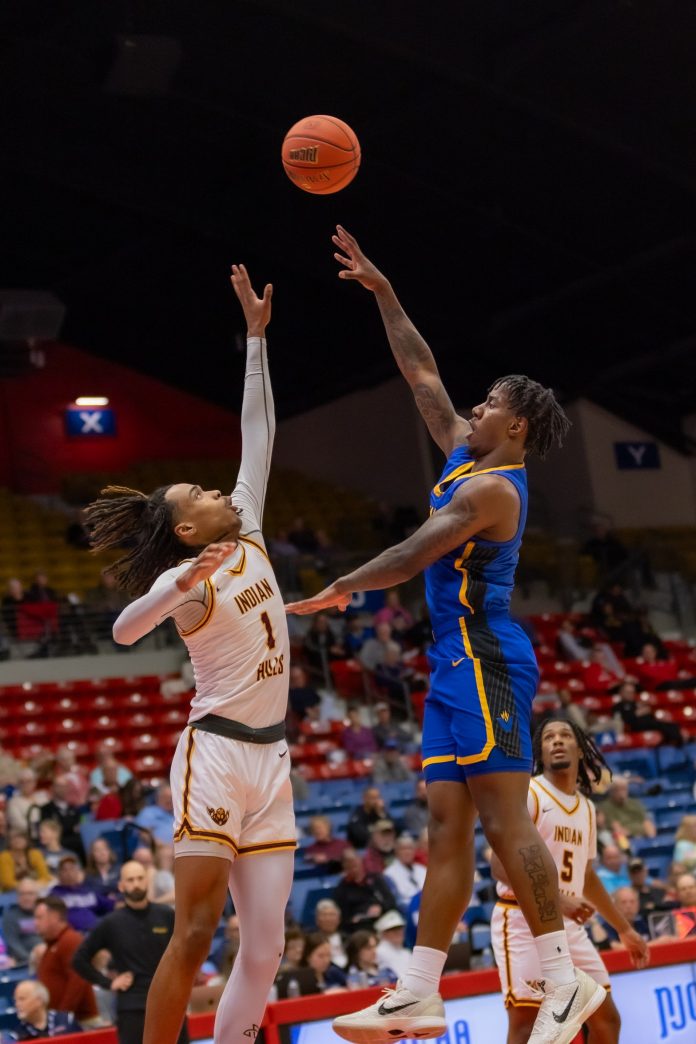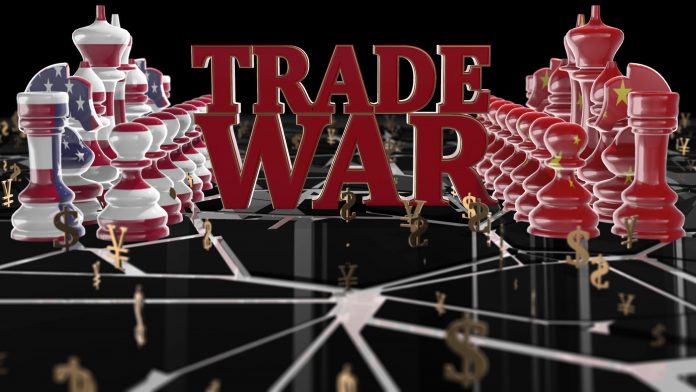|
|||||||||||||
|
|||||||||||||
|
|||||||||||||
|
|||||||||||||
|
|||||||||||||
|
|||||||||||||
|
|||||||||||||
|
|||||||||||||
|
|||||||||||||
|
HOT JOBS
USI WGolf places ninth at the Julie Invitational
BATAVIA, Ohio. – University of Southern Indiana Women’s Golf placed ninth among the 12-team field at the Julie Invitational, hosted by Northern Kentucky University on Monday and Tuesday.
The Screaming Eagles made a furious comeback on day two of the 36-hole Invitational, improving by 23 strokes and shooting a 318. However, USI struggled on day one again as the Eagles finished the first round in last place with a score of 341. The squad finished with a team score of 659 (+91) in 36 holes.
The final order of finish was Youngstown State University (+53), Lindenwood University (+61), Indiana University Indianapolis (+64), University of Wisconsin Green Bay (+65), Purdue University Fort Wayne (+67), NKU (+69), Glenville State University (+77), University of Detroit Mercy (+84), USI (+91), Valparaiso University (+92), Saint Francis University (+97), and Eastern Illinois University (+101).
Round 1
The Eagles continue to struggle in the first round of tournaments this spring, shooting a 341. Freshman Jade Blakeley returned to the lineup, delivering her best round of the tournament with an 82.
Senior Baileigh Schneider also delivered a respectable round one score of 84. However, USI averaged an 85 and failed to break 80 in the first round of the tournament for the third straight competition.
Round 2
USI flipped the switch on day two and jumped three spots into ninth place, averaging a score of 79 among the top four competitors. Both sophomore Alexis Wymer and freshman Brianna Kirsch broke 80 in their final rounds.
Wymer jumped eight spots and improved her score by 13 strokes, finishing with a 79. The round marks the first time this season the sophomore has broken 80 and the second time in her career.
Kirsch dazzled in the final round, leaping 26 spots into a tie for 37th. The freshman totaled a 75 (+4) with four birdies, nine pars, two bogeys, one double, and a triple. Kirsch leads the team with nine rounds under 80 total.
Vera delivered another consistent round, improving by five strokes with a score of 80 (+9). The freshman tied Kirsch at 37th overall as Vera continues to provide stability for this squad.
What’s Next
USI Women’s Golf concludes the regular season at the Jan Weaver Invitational on April 5-6. The Eagles continue to prepare for the ultra-competitive Ohio Valley Conference tournament on April 13-15.
USI stumbles late at Ball State, 5-4 Kitchens extends hitting streak to 13
USI stumbles late at Ball State, 5-4
Kitchens extends hitting streak to 13
MUNCIE, Ind. – University of Southern Indiana Baseball could not hold off Ball State University and lost 5-4 Tuesday afternoon in Muncie, Indiana. USI is 10-14 overall after the non-conference contest, while Ball State goes to 17-9 this year.
Ball State took the initial lead with a solo home run in the bottom of the second before USI exploded for four runs in the top of the third. USI junior catcher Micajah Wall scored the first run of the frame on a wild pitch, while junior designated hitter Cole Kitchens hit a three-run bomb to right field for the 4-1 advantage.
The home run was Kitchens’ team-best fourth of the year. Kitchens also extended his team-best hitting streak to 13 games with his two-for-four performance.
USI would maintain its three-run lead until the bottom of the seventh when Ball State scored a run to cut the Eagles’ advantage to 4-2. The Cardinals eliminated the Eagles’ advantage in the bottom of the eighth, posting three runs to pull in front, 5-4, before setting USI down in order in the ninth to finish the contest.
On the mound during a staff day for the Eagles, freshman right-hander Sage Stout took the loss in for USI. Stout threw a third of an inning, allowing three runs on two hits and two walks.
Up Next for the Eagles:
The Eagles return home to the USI Baseball Field March 28-30 when the Eagles host the University of Arkansas at Little Rock for a three-game OVC series. The USI-Little Rock series starts Friday, continues Saturday at 3 p.m., and concludes Sunday at 1 p.m.
Saturday’s game is Jersey Day at the USI Baseball Field. Fans wearing a jersey to the game will receive a free popcorn and will have a chance to win St. Louis Cardinals tickets in a sixth-inning drawing.
Little Rock, which hosts the University of Louisiana Monroe Wednesday before traveling to Evansville, is 9-15 overall this season and started OVC play by going 0-3 versus Tennessee Tech University.
The Trojans lead the all-time series with USI, 5-1, after taking three of four last spring. Little Rock swept the regular season series in 2024, while USI won the meeting in the 2024 OVC Tournament, 2-0, in Marion, Illinois.
Due to the ever-changing weather in March, USI encourages fans to watch for potential schedule changes on USIScreamingEagles.com, X,
Vincennes University extends housing scholarships for 2025-26 academic year
|
|
|
|
USI Women’s Basketball’s Shafford, Green and Loden named CSC Academic All-District
USI Women’s Basketball’s Shafford, Green and Loden named CSC Academic All-District
EVANSVILLE, Ind. – University of Southern Indiana Women’s Basketball senior guard Vanessa Shafford, graduate guard Lexie Green, and sophomore guard Sophia Loden were named College Sports Communicators Academic All-District for NCAA Division I. Shafford earned her second CSC Academic All-District Award while Green and Loden receive their first.
To be eligible for the CSC Academic All-District Award, the student-athlete must be a starter or important reserve with legitimate athletic credentials and at minimum a 3.5 cumulative grade point average (4.0 scale) as an undergraduate and graduate (if applicable). They must have reached a sophomore athletic and academic standing at the institution and must have completed at least one full academic year at the institution.
Shafford, who is pursuing a graduate degree in sports management, has started every game and played an average of over 31 minutes per game this season. Shafford is second on the team and top 15 in the Ohio Valley Conference with 12.1 points per game but paces the squad with 6.5 rebounds per game, which ranks fifth in the conference. Shafford also tops the team shooting over 40 percent from three-point range while setting the USI career mark for most three-pointers made this season. Shafford’s 2.1 made threes per contest ranks fifth in the OVC. The guard is third on USI in steals (57) and assists (61). Following the conclusion of the regular season, Shafford was selected to the All-OVC Second Team.
Green, an exercise science major, has appeared in every game and averages over 10 minutes per contest. The guard has totaled 55 points, 50 rebounds, and 32 assists. As part of USI’s guard depth off the bench, Green has shot nearly 35 percent from the floor and 30 percent from beyond the arc. Green provided a significant boost off the USI bench during the OVC tournament, scoring five points and hitting a triple in two of her three appearances during the Screaming Eagles’ OVC tournament run. Green also provided a defensive spark with a pair of steals during the tournament.
Loden, a computer information systems major, has made quite a jump as a sophomore. The guard has appeared in every game while making five starts. Loden averages over 20 minutes of action per outing. For the season, Loden has averaged more than six points and 4.5 rebounds per game while tallying 39 assists, 30 steals, and 10 blocks. Loden has shot over 43 percent overall and 33 percent from outside the perimeter. Loden’s best-scoring game was a career-high 18 points at Southern Illinois University Edwardsville on January 23.
The three student-athletes have helped lead USI to a 23-12 overall record going into the Super Sixteen round of the WNIT this Thursday. USI also earned a second consecutive berth in the OVC tournament this season and made it to at least the semifinal round for the second year in a row.
USI Softball home series against Tennessee Tech moved to Friday and Saturday
USI Softball home series against Tennessee Tech moved to Friday and Saturday
EVANSVILLE, Ind. – University of Southern Indiana Softball’s upcoming Ohio Valley Conference home series against Tennessee Tech University at USI Softball Field this weekend has been moved up a day to avoid bad weather in the forecast late in the weekend.
Originally scheduled for a single game on Saturday and a doubleheader on Sunday, the series has shifted to a doubleheader on Friday starting at Noon with the series finale on Saturday at Noon.
The Screaming Eagles (6-17, 3-5 OVC) return home after what has ended up being six consecutive games on the road for USI. However, the home series against Tennessee Tech starts a six-game homestand for Southern Indiana.
More information and coverage links can be found on usiscreamingeagles.com.
No. 14 Trailblazers advance to National Quarterfinals with win over No. 3 Indian Hills
No. 14 Trailblazers advance to National Quarterfinals with win over No. 3 Indian Hills
HUTCHINSON, Kan. – The No. 14 seed Vincennes University Trailblazers hit the floor at the Hutchinson Sports Arena Monday night in the second round of the 2025 NJCAA Division I National Tournament.
The Blazers faced another tough opponent in No. 3 seed Indian Hills Community College from Ottumwa, Iowa.
Vincennes was once again able to ride an early scoring run and fend off a late Warrior comeback to pick up the 85-71 victory over Indian Hills and advance to the National Quarterfinals.
The Trailblazers opened the game on another fast start, using an early 10-0 run to take a quick 10-2 lead.
Indian Hills would cut the lead down to three at 17-14 before the Blazers used a 10-3 run to get their first double-digit advantage of the night.
VU’s largest lead of the first half would be 11 points before the Warriors hit a last second shot before the break to cut the VU lead to 35-26 heading into the locker room.
Indian Hills battled their way back early in the second half, cutting the VU lead down to just two points before the Blazers scored six straight.
Vincennes would regain composure down the stretch and outscore the Warriors 22-7 to take a 77-58 lead.
Indian Hills tried to get one last comeback attempt but were unable to get back within single digits as the Trailblazers closed out the 85-71 victory over the Warriors.
Vincennes was led offensively by sophomore Hussein Elmaraghy (Cairo, Egypt) who set a new season-high with 20 points and four rebounds in the game.
Sophomores Lebron Thomas (Bishopville, S.C.) and Bryan Akanmu (Paris, France) were also in double figures Monday night, with Thomas adding 15 points five assists and five rebounds, while Akanmu just missed out on a double-double with 14 points and nine rebounds for Vincennes.
Freshman Dayton Williams (Louisville, Ky.) and sophomore Michael Cooper (Minneapolis, Minn.) were the final Trailblazer scorers in double figures, with the pair scoring 11 points each and Williams adding three rebounds, while Cooper grabbed five rebounds off the bench.
The Trailblazers advance to the National Quarterfinals, where they will face off against the winner of No. 6 seed Panola College and No. 11 seed Frank Phillips College Wednesday, March 26 at 9 p.m. eastern.
Vincennes will find out who their opponent will be Wednesday night when Panola and Frank Phillips square off Tuesday, March 25 at 9 p.m. eastern.
VINCENNES BOX SCORE
VINCENNES (85): Bryan Akanmu 4-8 6-6 14, Lebron Thomas 5-12 4-6 15, Travelle Bryson 3-7 0-0 7, Dayton Williams 5-10 1-3 11, Hussein Elmaraghy 7-9 5-6 20, Christian Andrews 1-3 2-4 5, Michael Cooper 3-4 4-4 11, Ali Sakho 1-1 0-0 2, Team 29-54 22-29 85.
Indian Hills – 26 45 – 71
VU (28-4, 16-1) – 35 50 – 85
Three-point goals: VU 5 (Thomas, Bryson, Elmaraghy, Andrews, Cooper). Rebounds: VU 34 (Akanmu 9). Assists: VU 11 (Thomas 5). Steals: VU 5 (Akanmu, Thomas, Williams, Cooper, Sakho). Blocked Shots: VU 1 (Elmaraghy). Turnovers: VU 11. Personal Fouls: VU 16. Fouled out: None. Technical Fouls: VU Coach (2nd – 1:28).
-30-
The No. 14 seed Vincennes University Trailblazers improve to 28-4 on the season, with a 16-1 record against Region 24 opponents.
BREAKING NEWS: County Commissioner Tells Library Board to Remove Tampons From Men’s Room
The men’s restrooms at Evansville Vanderburgh Public Libraries have been stocked with feminine hygiene products that are dispensed free of charge from vending machines. A sign on the machines says: “Evansville Vanderburgh Public Library is proud to provide FREE hygiene products for all library patrons in an effort to improve hygiene equity in Vanderburgh County.”
The machine in the men’s room offers a choice of free tampons or pads.

County Commission President Justin Elpers sent a letter to the library director yesterday (3/24) seeking the removal of the machines. “The costs associated with this purchase, installation, and stocking of these dispensers represent an unnecessary expenditure of taxpayer dollars.” The letter said, “As President of the Vanderburgh County Commission, I am formally requesting the removal of all women’s hygiene dispensers from the men’s restrooms in all Vanderburgh County Public Library facilities.”
Presidential Authority on Tariffs: Can the President Unilaterally Impose Them?
 Presidential Authority on Tariffs: Can the President Unilaterally Impose Them?
Presidential Authority on Tariffs: Can the President Unilaterally Impose Them?
By Joe Wallace
In the ongoing debate over trade policy, the question of presidential authority to impose tariffs has resurfaced with particular intensity. Former President Donald Trump’s frequent pronouncements about raising or lowering tariffs on foreign goods have led to accusations that he is exceeding his constitutional authority. The issue is not a new one—presidents have long used tariffs as a tool of economic policy—but does the President of the United States truly have unilateral power to impose tariffs? Or does he require congressional approval?
Constitutional Basis and Congressional Authority
The U.S. Constitution grants Congress the exclusive power to regulate commerce with foreign nations under Article I, Section 8. This includes setting tariffs, duties, and trade policies. However, over the past century, Congress has delegated much of this authority to the executive branch through a series of statutes that allow the president to take specific tariff-related actions under certain conditions.
The key legislative acts that empower the president to impose tariffs without prior congressional approval include:
- The Trade Expansion Act of 1962 (Section 232)
This law allows the president to impose tariffs on imports deemed a national security threat. President Trump invoked this authority in 2018 to justify tariffs on steel and aluminum, arguing that reliance on foreign metals weakened U.S. security. - The Trade Act of 1974 (Section 301)
Under this statute, the president can impose tariffs to retaliate against unfair trade practices by other nations. The Trump administration used this law extensively against China, citing intellectual property theft and forced technology transfers. - The International Emergency Economic Powers Act (IEEPA) of 1977
This act gives the president broad authority to regulate trade during a declared national emergency. While primarily used for economic sanctions, it could theoretically justify tariffs if framed as an emergency action. - The Smoot-Hawley Tariff Act (1930) and the Reciprocal Trade Agreements Act (1934)
These older laws set precedents for executive tariff authority but were largely superseded by later trade agreements and policies that promoted tariff reduction.
Historical Precedents: How Have Presidents Used Tariffs?
Historically, U.S. presidents have used tariffs both as an economic tool and as leverage in foreign policy:
- Ronald Reagan (1980s): Used Section 301 to impose tariffs on Japanese electronics in response to unfair trade practices.
- George W. Bush (2002): Imposed steel tariffs under Section 201 of the Trade Act of 1974 but later rescinded them after the World Trade Organization (WTO) ruled them illegal.
- Barack Obama (2009): Imposed tariffs on Chinese tires under Section 421, which allows targeted measures against surges of imports from China.
Trump’s aggressive use of tariffs, particularly against China, represented an expansion of executive power in trade policy. His administration argued that previous presidents had underutilized existing laws and that the global economic landscape required stronger action. Critics, however, contended that his unilateral tariff decisions disrupted global markets, harmed American consumers, and overstepped constitutional authority.
Do Presidents Need Congressional Approval?
The short answer is: it depends. In most cases, the president does not need immediate congressional approval to impose tariffs because Congress has already granted the authority through the laws mentioned earlier. However, this authority is not unlimited.
- Challenges in Court: Businesses and trade groups frequently challenge presidential tariffs in federal courts. While some challenges succeed, courts have generally upheld presidential discretion under existing laws.
- Congressional Pushback: Lawmakers can revoke or modify tariff authority, though this requires bipartisan cooperation. In 2019, Congress considered limiting presidential tariff power through the Bicameral Congressional Trade Authority Act, but it did not pass.
- International Trade Agreements: The U.S. is bound by commitments to the WTO and trade agreements like NAFTA (now USMCA). Unilateral tariffs can lead to retaliatory measures and WTO disputes, as happened during the Trump-China trade war.
Conclusion: Expanding Executive Power in Trade Policy?
While Congress technically holds the power to regulate trade, decades of legislative delegation have given presidents broad discretion in imposing tariffs. Trump’s actions were not without precedent, but they highlighted how much power the executive branch wields in trade policy. Whether future presidents will continue this trend or whether Congress will reclaim some of its authority remains an open question.
For now, the president can still impose tariffs under existing laws without direct congressional approval. However, the political and economic consequences of such actions ensure that every tariff decision remains a subject of intense scrutiny and debate.











